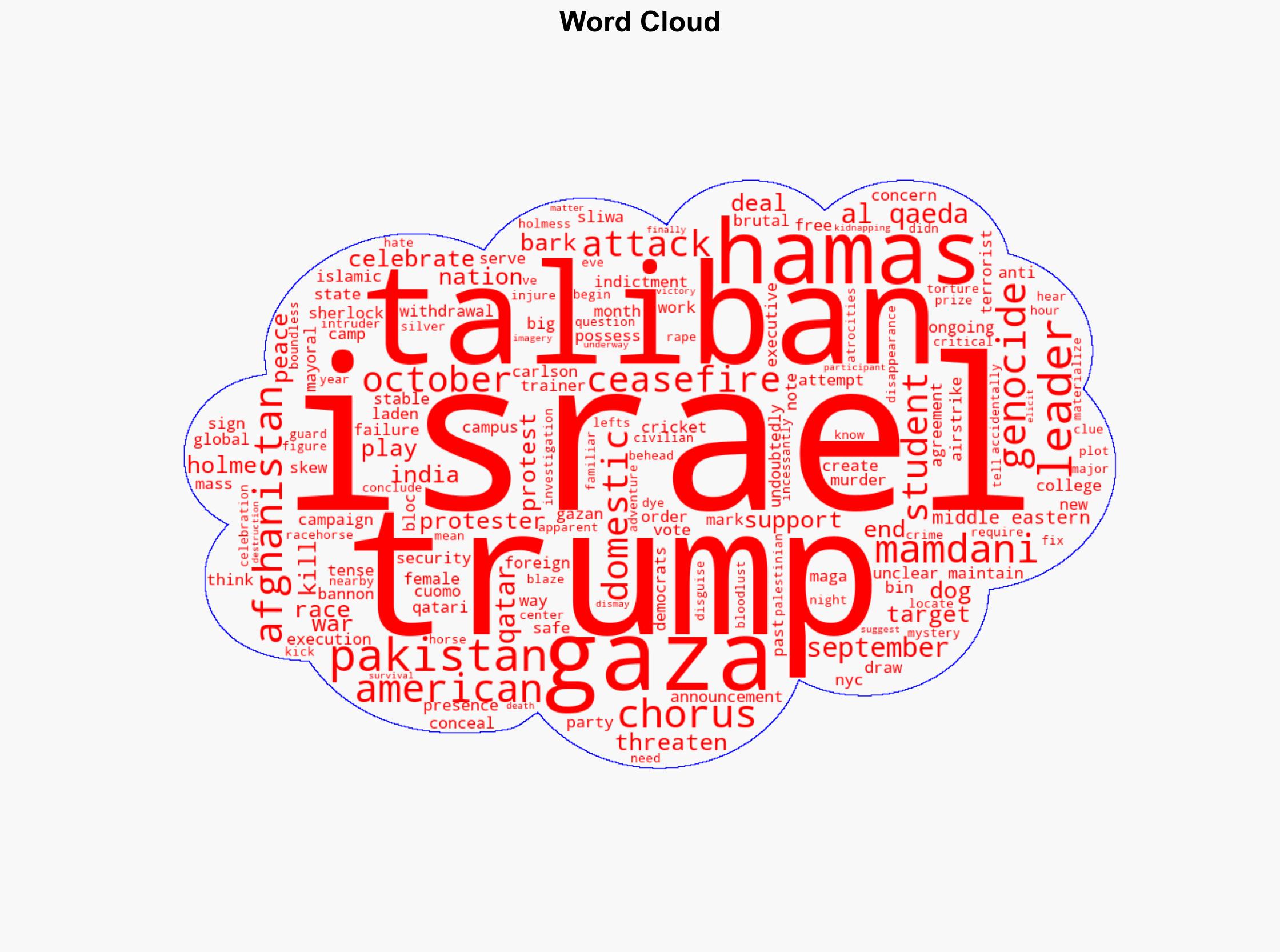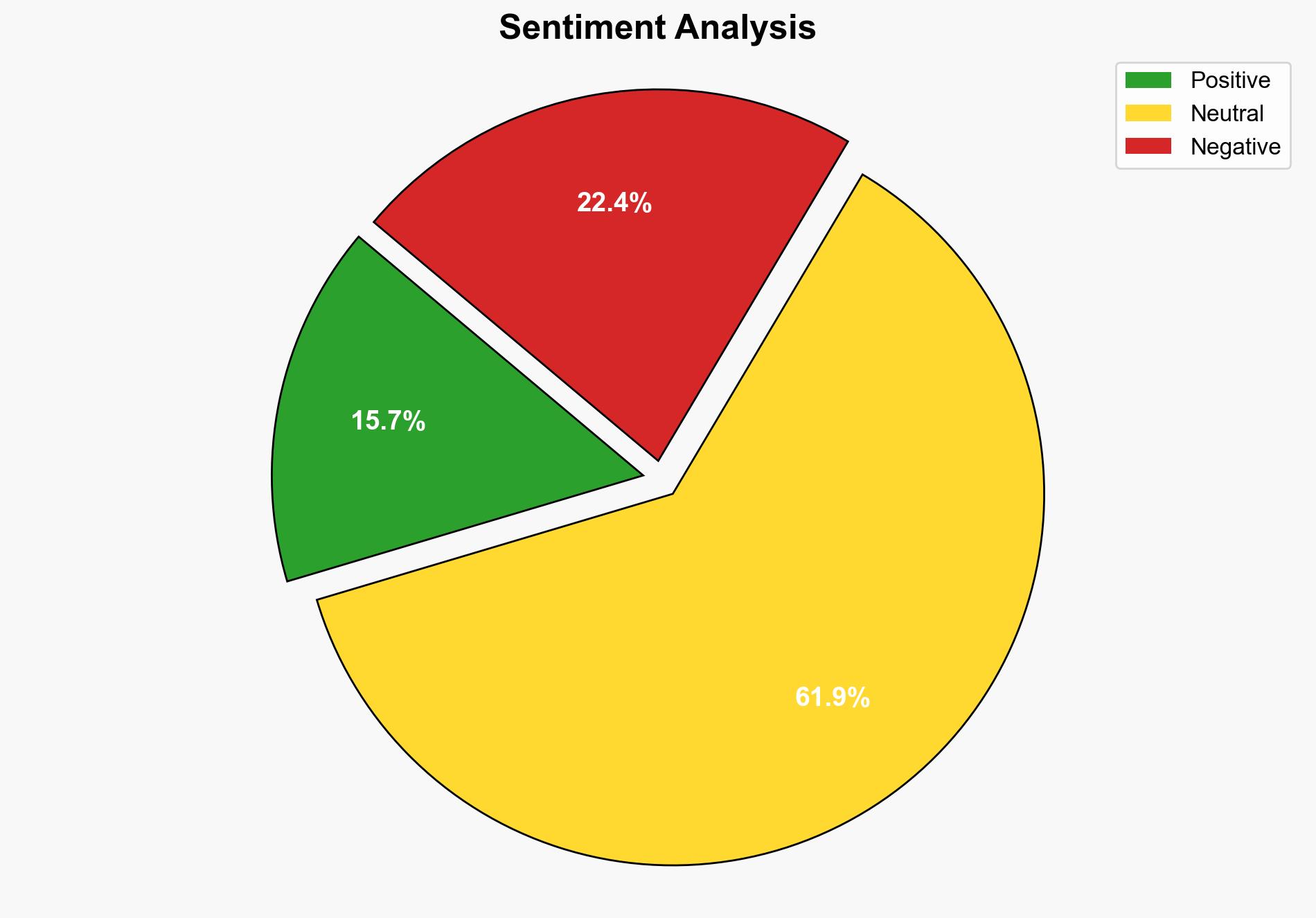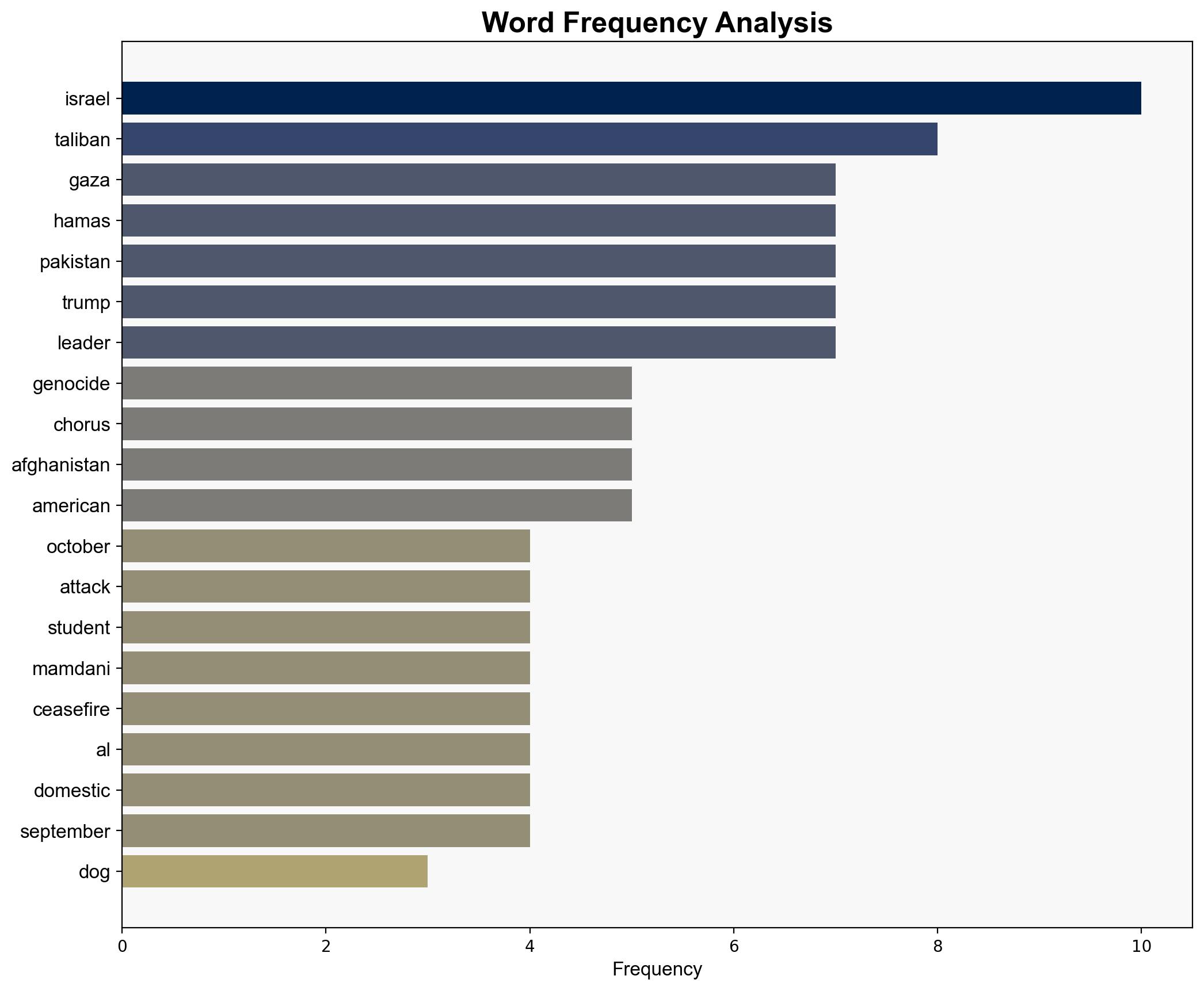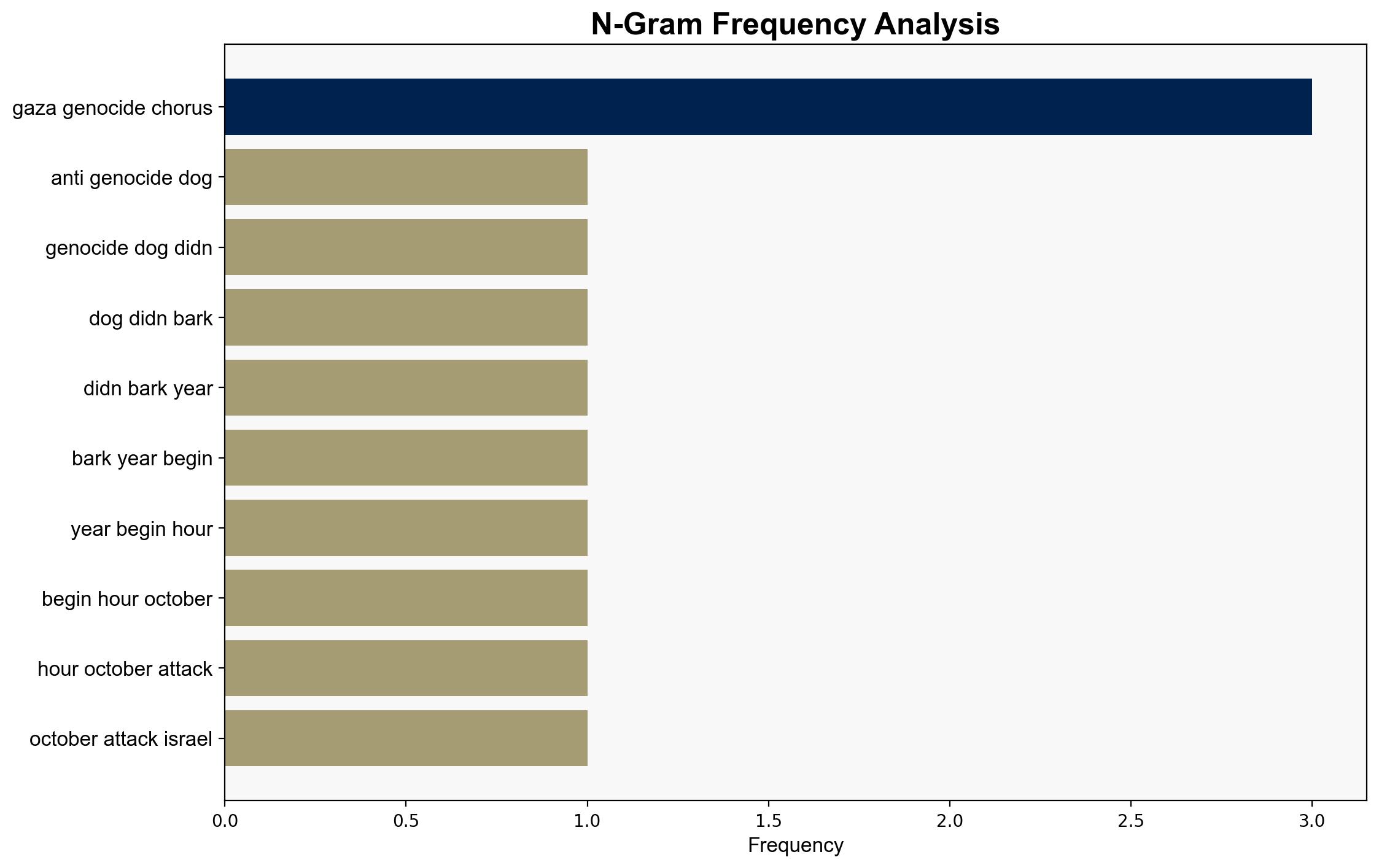Why the ‘Anti-Genocide’ Dog Didn’t Bark – Americanthinker.com
Published on: 2025-10-15
Intelligence Report: Why the ‘Anti-Genocide’ Dog Didn’t Bark – Americanthinker.com
1. BLUF (Bottom Line Up Front)
The most supported hypothesis is that the lack of widespread condemnation of alleged genocide in Gaza is due to a strategic shift in political and social narratives, influenced by demographic changes and political campaigning. Confidence in this hypothesis is moderate, given the complexity of the geopolitical landscape and the potential for misinformation. Recommended action includes monitoring shifts in public sentiment and political strategies, particularly among younger demographics and educational institutions.
2. Competing Hypotheses
1. **Hypothesis 1**: The absence of a strong anti-genocide response is due to a deliberate political strategy by influential groups to redirect focus towards other geopolitical issues, such as the internal dynamics of Israel and Palestine, and the broader Middle Eastern conflicts.
2. **Hypothesis 2**: The silence is primarily a result of changing demographics and political engagement patterns, particularly among younger populations who are more focused on domestic issues and influenced by targeted political campaigns.
Using ACH 2.0, Hypothesis 2 is better supported by the evidence of demographic shifts and political engagement strategies mentioned in the source text, such as the focus on college students and grassroots organizing.
3. Key Assumptions and Red Flags
– **Assumptions**: It is assumed that the demographic changes and political campaigns have a direct impact on public discourse and protest dynamics. Another assumption is that the lack of response is not due to media bias or censorship.
– **Red Flags**: The potential for misinformation or selective reporting could skew perceptions. The narrative may be influenced by political agendas that are not fully transparent.
– **Blind Spots**: The analysis may overlook the role of international actors and media in shaping the narrative.
4. Implications and Strategic Risks
The shifting focus of political narratives could lead to increased polarization and a potential neglect of critical humanitarian issues. The demographic changes suggest a potential realignment of political power, which could impact future elections and policy decisions. There is also a risk of escalating tensions if the underlying issues in Gaza and Israel are not addressed.
5. Recommendations and Outlook
- Monitor demographic trends and political engagement strategies to anticipate shifts in public sentiment.
- Engage with educational institutions to understand and influence emerging narratives.
- Scenario Projections:
- Best Case: Increased awareness and balanced discourse lead to constructive dialogue and policy solutions.
- Worst Case: Escalation of tensions and polarization, resulting in social unrest and geopolitical instability.
- Most Likely: Continued demographic shifts influence political outcomes, with incremental changes in public discourse.
6. Key Individuals and Entities
– Eric Adams
– Curtis Sliwa
– Alexandria Ocasio-Cortez (AOC)
– Zohran Mamdani
– Kamala Harris
– Andrew Cuomo
7. Thematic Tags
national security threats, cybersecurity, counter-terrorism, regional focus





